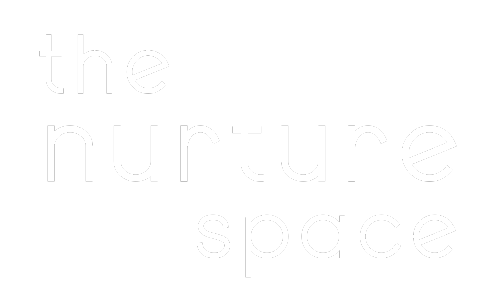Naturopathic Interventions for Depression and Mood Disorders
In recent years, there's been a significant shift towards exploring holistic and naturopathic interventions for managing mental health, particularly depression and mood disorders. This movement is driven by the desire for treatments that address the root cause of mental health issues, rather than merely alleviating symptoms.
Naturopathic Approaches to Depression: A Comprehensive Overview
Naturopathic medicine offers a unique perspective on health and wellness, focusing on personalised care and natural remedies. It integrates traditional healing methods with modern science to treat the whole person body, mind, and spirit. This approach is particularly appealing for treating depression, as it considers the intricate balance of factors influencing mental health.
At
The Nurture Space, we specialize in naturopathic medicine and offer tailored treatments to address depression and other mental health concerns. Our holistic approach focuses on identifying and addressing the root causes of your condition, empowering you to achieve lasting well-being.
Understanding Depression

Depression is a multifaceted mental health condition characterised by persistent feelings of sadness, loss of interest in activities, and various physical and emotional problems. It can significantly impair daily functioning and quality of life, highlighting the urgency of effective treatment options.
Symptoms and Types of Depression
Depression manifests through a range of depressive symptoms, including but not limited to, fatigue, changes in sleep and appetite, and difficulty concentrating. It's crucial to distinguish between depressive symptoms, which can vary widely among individuals, and the diagnostic criteria for depression. Major depression, including its subtypes such as clinical depression, severe depression, and moderate depression, requires specific therapeutic approaches.
Naturopathic Approaches to Depression

Naturopathic medicine is grounded in the principle of "vis medicatrix naturae" the healing power of nature. It emphasises prevention, treatment, and optimal health through methods and substances that encourage the individual's inherent self-healing processes. The naturopathic philosophy advocates for understanding and treating the underlying causes of disease, rather than just suppressing symptoms.
Holistic Treatment Strategies
A holistic approach to depression involves a comprehensive evaluation of an individual's lifestyle, diet, environmental factors, and psychological well-being. Naturopathic doctors (NDs) may recommend a variety of treatments, including herbal medicine, dietary modifications, exercise, and stress management techniques, to support the body's natural ability to heal and maintain balance.
Personalized Care and Integrative Practices
Naturopathy excels in offering personalised care tailored to the individual's specific needs and conditions. NDs often work alongside conventional healthcare providers to integrate naturopathic treatments with traditional medical approaches, ensuring a well-rounded and effective depression treatment plan.
The Role of Naturopathic Doctors

Naturopathic doctors (NDs) play a pivotal role in the mental health care landscape, offering a unique approach to treating depression. With rigorous training in both conventional medical sciences and natural health practices, NDs are well-equipped to provide comprehensive care.
They prioritise understanding the individual's health history, lifestyle, and underlying factors contributing to depressive symptoms, ensuring a tailored treatment plan that addresses the root causes of depression rather than merely managing symptoms. NDs approach mental health with a holistic lens, considering the interconnectedness of the body and mind.
This perspective allows them to assess and treat depression through various modalities, including dietary advice, lifestyle changes, herbal supplements, and stress-reduction techniques. Their goal is to enhance the body's natural healing ability, promoting long-term wellness and resilience against mental health challenges.
Herbal Medicine in Naturopathy
Herbal medicine is a cornerstone of naturopathic treatment for depression. Herbs like St. John's Wort have been studied for their potential in managing depressive disorders, offering a natural alternative to conventional antidepressants for some individuals.
St. John's Wort, in particular, has been widely researched and is often recommended for mild to moderate depression, owing to its ability to influence neurotransmitter activity in the brain, potentially improving mood and alleviating depressive symptoms.
However, while herbal remedies can be effective, they are not without considerations. The safety and effectiveness of herbal treatments depend on various factors, including the individual's overall health, the specific characteristics of their depression, and any other medications they may be taking.
For instance, St. John's Wort is known to interact with a range of conventional drugs, potentially leading to adverse effects or diminished efficacy of treatments. NDs are vigilant about these interactions, ensuring that herbal medicine is used safely and effectively as part of a broader treatment plan.
Nutritional Therapies and Supplements

Nutrition plays a critical role in mental health, with certain deficiencies or dietary patterns contributing to the onset or exacerbation of depressive symptoms. Naturopathic doctors emphasise the importance of a well-balanced diet rich in nutrients that support brain health and emotional well-being.
Vitamin D supplements, omega-3 fatty acids, and B vitamins are among the key nutrients researched for their positive effects on mood disorders. Vitamin D, often referred to as the "sunshine vitamin," has been linked to mood regulation, with deficiencies associated with increased risk of depression.
Omega-3 fatty acids, particularly those found in fish oil, have anti-inflammatory properties and are crucial for brain function and mood regulation. Similarly, B vitamins play essential roles in neurotransmitter synthesis and energy production, impacting emotional health and resilience.
NDs may recommend dietary supplements to address specific nutrient deficiencies or as part of a broader strategy to improve mental health. By enhancing dietary patterns and incorporating targeted supplements, individuals can support neurotransmitter production, mood regulation, and overall brain health, contributing to a holistic approach to treating depression through depression counseling.
Lifestyle Modifications for Mental Health

Lifestyle modifications are foundational to naturopathic care, emphasising the critical role of exercise, sleep, and diet in managing depression. Regular physical activity is not only beneficial for physical health but also crucial for mental health, as it can reduce depressive symptoms by enhancing endorphin levels and improving mood.
Adequate sleep is another pillar, with sleep disturbances often exacerbating depressive states. Naturopathic recommendations frequently include establishing a regular sleep schedule and creating a conducive sleep environment.
Diet plays a comparable role, with a focus on whole foods, minimal processed foods, and reduced sugar intake to stabilise mood and energy levels.
Physical Health's Impact on Mental Well-being
The interplay between physical health and mental health is profound, with each aspect influencing the other. Poor physical health can be both a cause and a consequence of depression, creating a cycle that can be challenging to break. Naturopathic medicine addresses this cycle by promoting physical health through targeted lifestyle changes, thereby supporting mental health recovery and resilience.
Special Considerations in Naturopathic Care
Treating depression within the context of bipolar disorder and other mood disorders requires careful consideration and expertise. Naturopathic doctors are adept at recognizing the nuances of these conditions, tailoring treatments to ensure that interventions support overall mood stability without triggering manic episodes or rapid cycling.
Integrating Naturopathic and Conventional Treatments
The importance of a comprehensive care approach is paramount in treating depression, especially for individuals with complex or severe conditions. Naturopathic care often complements conventional treatments, such as medication and psychotherapy, offering a holistic strategy that addresses multiple facets of mental health.
Risks and Limitations

While natural remedies and lifestyle changes can be powerful tools in managing depression, they are not panaceas. Recognizing the limits of what naturopathic interventions can achieve is crucial, particularly for individuals with severe depression or those requiring more intensive psychiatric care. Professional guidance from qualified naturopathic doctors ensures that treatments are used safely and effectively, aligned with individual health needs and conventional care plans.
Serotonin Syndrome and the Need for More Research
The use of certain natural supplements, especially in combination with prescription antidepressants, carries the risk of serotonin syndrome, a potentially life-threatening condition caused by excessive serotonin levels.
This risk underscores the need for careful management and coordination of care. Furthermore, while many naturopathic treatments show promise, ongoing research is essential to fully understand their efficacy, safety, and role within broader depression treatment paradigms.
Integrative Health Strategies
Integrative health strategies represent the confluence of naturopathic and traditional medical treatments for depression. This approach maximises the strengths of each modality, offering patients a comprehensive, personalised treatment plan that addresses both the symptoms and underlying causes of depression.
The Role of Complementary and Integrative Health
Complementary and integrative health practices extend beyond the individual interventions to embody a philosophy of care that values patient autonomy, holistic well-being, and the therapeutic potential of integrating conventional and natural treatments. This perspective is increasingly recognized within the broader healthcare system, reflecting a shift towards more inclusive, patient-centred care models for mental health.
Conclusion
In the quest to address the complex and multifaceted nature of depression and mood disorders, naturopathic interventions offer a promising path that emphasises the healing power of natural remedies, the critical role of lifestyle modifications, and the importance of a holistic approach to mental health care.
This exploration of naturopathic approaches to depression not only highlights the potential benefits of herbal medicine, nutritional therapies, and lifestyle changes but also underscores the necessity of integrating these strategies within a comprehensive treatment plan for depression. Ready to take the next step? Contact us today to schedule a consultation.



